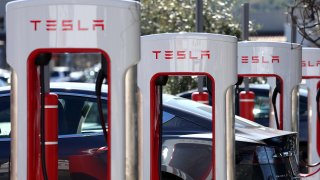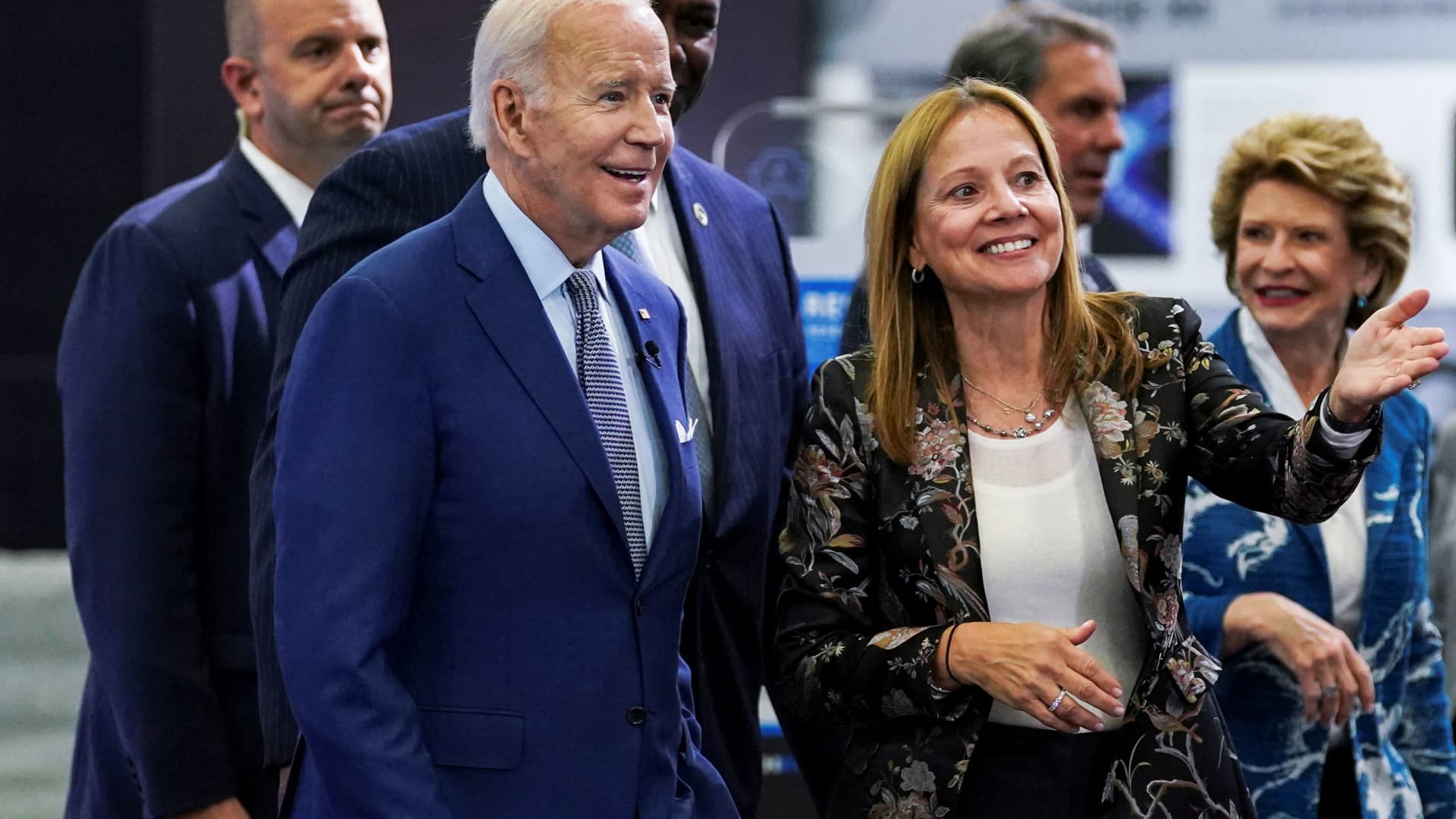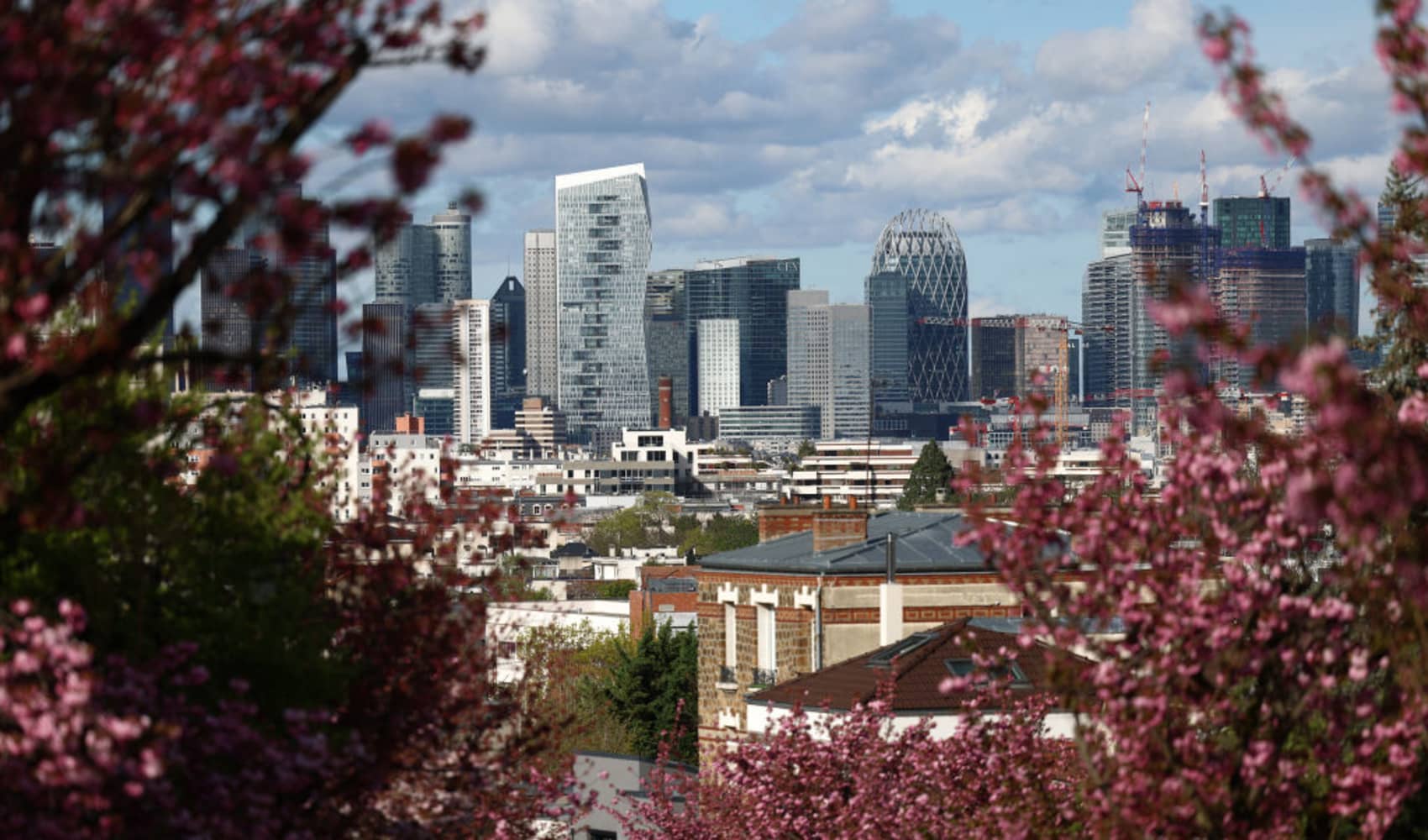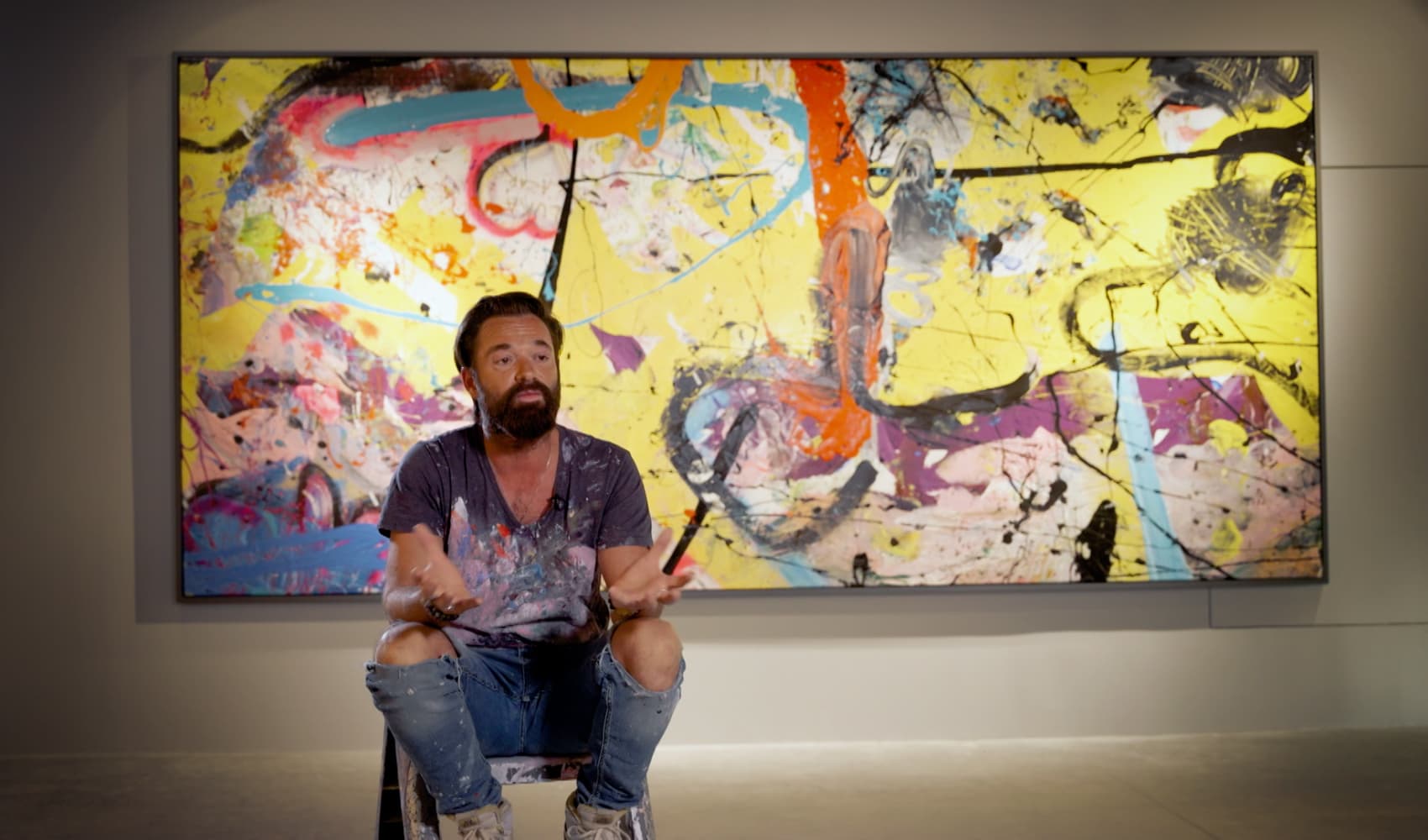
- General Motors will follow crosstown rival Ford Motor in partnering with Tesla to use the electric vehicle leader's North American charging network and technologies.
- GM, like Ford, will begin installing a charging port used by Tesla, known as NACS, instead of the current industry-standard CCS, in its EVs starting in 2025.
- Both GM and Tesla stocks were up about 3% during afterhours trading Thursday.
DETROIT — General Motors will follow crosstown rival Ford Motor in partnering with Tesla to use the electric vehicle leader's North American charging network and technologies.
Under the deal, GM vehicles will be able to access 12,000 of Tesla's fast chargers using an adapter and the Detroit automaker's EV charging app, starting next year.
Feeling out of the loop? We'll catch you up on the Chicago news you need to know. Sign up for the weekly Chicago Catch-Up newsletter here.
GM, like Ford, will also begin installing a charging port used by Tesla, known as NACS, or the North American Charging Standard, instead of the current industry-standard CCS, in its EVs starting in 2025.
GM CEO Mary Barra told CNBC's Phil LeBeau on Thursday that, as a result of a deal, the automaker expects to save up to $400 million of a previously announced $750 million investment to build out EV charging.
The partnerships with now two leading Detroit automakers is a major win for Tesla and its charging technology. It is expected to add pressure on other automakers — as well as the U.S. government, which is investing billions in building out an EV charging network — to adopt Tesla's technology.
Money Report
Wall Street analysts hailed the Tesla-Ford deal as a "win-win" when that deal was announced last month. Both GM and Tesla stocks were up about 3% during afterhours trading Thursday.
The deal was announced by Barra and Tesla CEO Elon Musk during a live audio discussion on Twitter Spaces. It comes as GM ramps up production of its fully electric vehicles in pursuit of Tesla-level sales volumes in the segment.

It also marks a stark reversal in strategy for GM. Weeks ago, when Ford announced its own partnership with Tesla, GM was working with engineering organization SAE International to develop and refine an open connector standard for CCS.
"I think we have a real opportunity here to really drive this to be the unit unified standard for North America, which I think will even enable more mass adoption, so I couldn't be more excited," Barra said during the less than 10-minute discussion.
Adding to the curiosity of rivals partnering: the Twitter Spaces was Barra's first tweet since Oct. 27, since she stopped using the social media platform when Musk became owner. GM also discontinued advertising on the platform at that time.
A GM spokesman said Thursday its brands and some executives continue to use Twitter but the company has not resumed any advertising on the social media platform. Barra told CNBC after the Twitter discussion that "it's possible" the company could eventually reinstate advertising, as the company searches for a new chief marketer and is "reimagining" its marketing.
The GM-Tesla deal, like Ford's, is likely to be beneficial for both companies. It is expected to more than double access to fast chargers for GM's and Ford's customers and increase use of Tesla's network.
Tesla says it has roughly 45,000 Supercharger connectors worldwide at 4,947 Supercharger Stations. The company does not break out how many are in the U.S. The U.S. Department of Energy reports the country only has about 5,300 CCS fast chargers.
Tesla previously discussed opening its private network to other EVs. White House officials announced in February that Tesla committed to opening up 7,500 of its charging stations to non-Tesla EV drivers by the end of 2024.
Musk on Thursday said Tesla owners will not be given priority to the company's chargers, calling access "an even playing field" for EV owners.
"The most important thing is that we've witnessed the electric vehicle revolution," Musk said.
Public charging of electric vehicles is a major concern for potential buyers, and no automaker other than Tesla has successfully built out its own network. Instead, those automakers have announced partnerships with third-party companies that have often proven unreliable and frustrating to owners.
Most U.S. drivers log vehicle miles from home to locations nearby. But EV buyers who want to take longer road trips, or who don't have access to a garage with a charger, often worry about access to reliable, public charging.
— CNBC's Lora Kolodny and John Rosevear contributed to this report.






